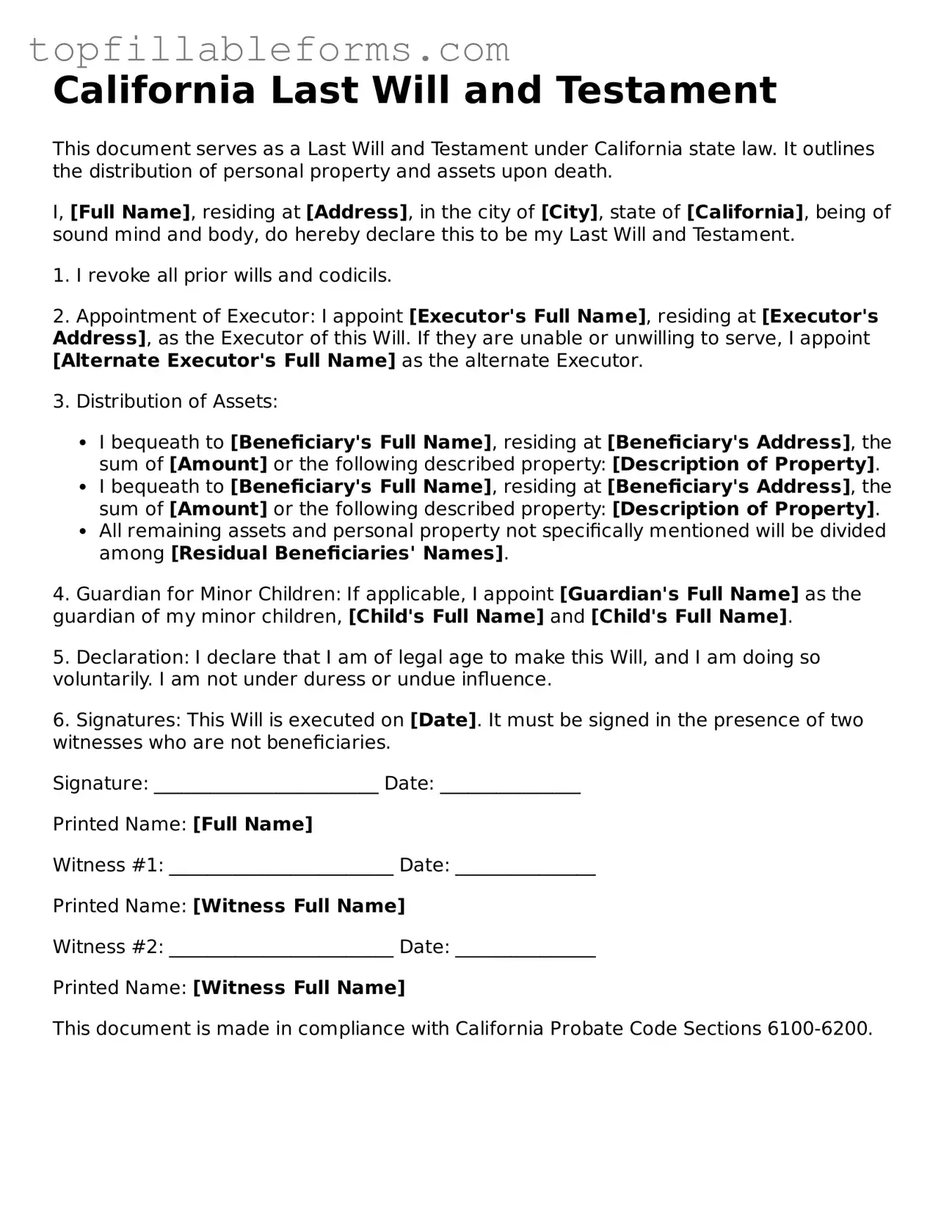Attorney-Verified Last Will and Testament Template for California
A California Last Will and Testament is a legal document that outlines how a person's assets and affairs should be handled after their passing. This form serves as a vital tool for ensuring that your wishes are respected and can provide peace of mind for both you and your loved ones. Understanding its importance can help you navigate the often complex process of estate planning.
Open Last Will and Testament Editor Here

Attorney-Verified Last Will and Testament Template for California
Open Last Will and Testament Editor Here
Finish the form now and be done
Finish your Last Will and Testament online by editing, saving, and downloading fast.
Open Last Will and Testament Editor Here
or
▼ PDF File
